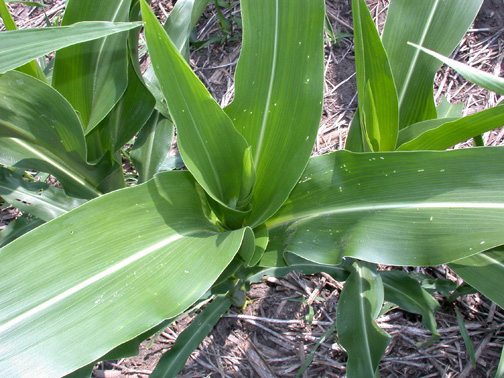Gary Kauffman, a northern Indiana crop consultant, shared with me his observation of European corn borer moth activity this past week. Certainly, these moths have been emerging and actively mating/egg laying throughout the state. The female moths are attracted to many hosts, tall, early lush corn being one. As I drive through the countryside, there are a few islands of corn that match this description. These “trap” crops, if not protected with specific Bt traits, should be scouted for the characteristic shot-hole, whorl feeding. This pest, neglected for some years, has unpleasantly surprised producers that have chosen to forgo traited corn. Fortunately, first-generation corn borer infestations can be treated successfully if caught before larvae enter the midrib of leaves and/or stalk. Happy scouting!



